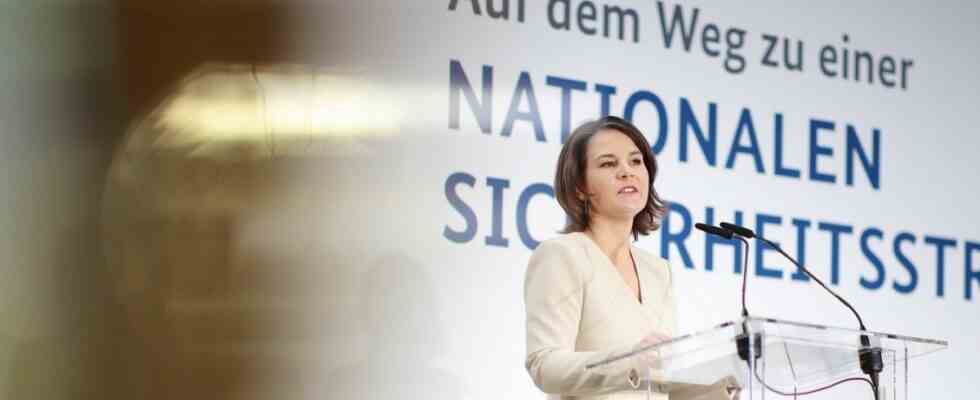In view of the Russian attack on Ukraine, the army inspector, Lieutenant General Alfons Mais, made the impressively honest and politically devastating diagnosis that the Bundeswehr was “more or less bare”. That was aimed at the equipment of the ruined, saved army. The new federal government now wants to remedy these shortcomings with 100 billion euros. Finally, one can only say. Unfortunately, it took Putin’s war to wake up, although there was no shortage of wake-up calls: Crimea, Syria, a US president who considered NATO obsolete…
But what the government can’t buy with this staggering sum is a viable security strategy. An inventory of the official security policy concepts in Germany is no less devastating: Here, too, the Federal Republic is blank. In the election campaign and in the coalition negotiations, foreign and security policy played a niche role, just as it had in the public debate for years. The idea of a national security council was rejected for ideological and power-political reasons.
In her keynote address on the government’s plan to give the country a security strategy, which was agreed upon before Putin’s invasion, Foreign Minister Annalena Baerbock frankly admitted that defensiveness is a word that many have not uttered for a long time. The fact that the Federal Foreign Office is in charge of this and not Chancellor Olaf Scholz documents the priorities of the coalition before the turning point. That doesn’t necessarily have to be damage, if you look at Baerbock’s outline for the strategy.
Where will the next “turning point” take place – in the Taiwan Straits?
She makes the right points: Germany must fundamentally rethink its relationship with Russia — as long as Vladimir Putin is in power, it will be characterized by opposition. As far as China is concerned, the Federal Republic should learn lessons from the Ukraine war before the next turning point comes in the South China Sea or in the Taiwan Strait. Germany must be honest and define its interests. This also means that national and alliance defense should be considered together with crisis management in other parts of the world. Coping with climate change will be one of the greatest challenges. Cyber threats are forcing us to reconsider the traditional dividing lines between internal and external security.
Germany must live up to its responsibilities in Europe and shed the defensive reflexes nurtured by lazy self-satisfaction and ignorance. The German President at the time, Joachim Gauck, put it in a somewhat friendlier way than a wish for a “realignment of German foreign policy” back in 2014 at the Munich Security Conference, even before Putin attacked Ukraine for the first time, in Crimea. The federal government does not have much time to catch up. The EU and NATO will each draft their own security doctrine by the summer. Germany should get involved as an anchor of the transatlantic alliance, as a partner of the Eastern European states, as a constructive leader and mediator in the EU. The value of security policy strategies, however, only becomes apparent when they are consistently implemented – and that too has not been a strength of German politics so far.

